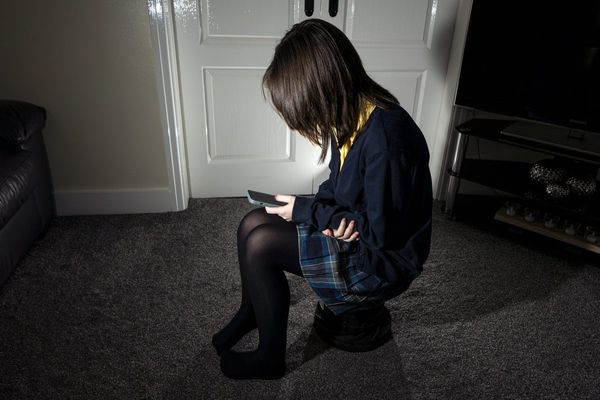HALIFAX — Some Nova Scotia parents felt more comfortable than others bringing their kids to school on Monday, as the province became the first in Atlantic Canada to reopen in-person classes.
Students in about 400 public schools across the province had been learning remotely since Jan. 10 because of the threat to public safety posed by the Omicron variant of the novel coronavirus.
Jeremy Webb, a parent to two sons, said he faced feelings of "dread" taking his children to school on Monday in the Halifax area, despite wanting them to get back to in-class learning.
"There's no doubt that mental health and their energy needs to be back," Webb said in an interview. "(But) no matter what we do to teach them and train them to wear their masks and to follow all the rules, at the end of the day, they're in a classroom with a large number of other children."
Nova Scotia Teachers Union president Paul Wozney said Monday in an interview that the government hasn't done enough to ensure students and staff are protected from COVID-19, especially considering officials will not conduct contact tracing in schools.
Wozney says some of his members are being asked to report to work even if they're symptomatic but haven't tested positive for the disease.
The lack of contact tracing is another big concern for Webb, who said he feels parents no longer have the power to take care of the health of their children and themselves.
Tim Rissesco said his two sons both reported enjoying their first day back at school. He said he feels the measures put in place by schools and government officials are adequate to keep his children safe.
"There's always the concern that we're still in a global pandemic … but I think with the protocols in place, they're happy to be back," he said.
Unlike Webb, Rissesco said he wasn't particularly concerned about the lack of contact tracing in schools. "What's happened now, particularly with this latest variant, is that it's all over the place, so the utility of the contact tracing is negated by that."
The teachers union's main concern is that reopened schools could lead to a surge in COVID-19 cases, Wozney said.
"We’re beginning the grand 'we have to learn to live with it' experiment in Nova Scotia with the youngest, least vaccinated Nova Scotians," Wozney said, adding that schools could lead to a wave of the disease unlike previous waves.
Meanwhile, public health officials announced Monday that eligibility for boosters shots had been expanded to include residents 18 years and up. Officials have also added 55,000 appointments for the Pfizer-BioNTech vaccine.
As well, four more COVID-19-related deaths were reported Monday, along with 73 hospitalizations, including 13 in intensive care. Officials reported 495 new cases.
This report by The Canadian Press was first published Jan. 17, 2022.
---
This story was produced with the financial assistance of the Facebook and Canadian Press News Fellowship.
Danielle Edwards, The Canadian Press
Note to readers: This is a corrected story. A previous version said some teachers who had tested positive for COVID-19 were being asked to report to work as long as they had no symptoms.







